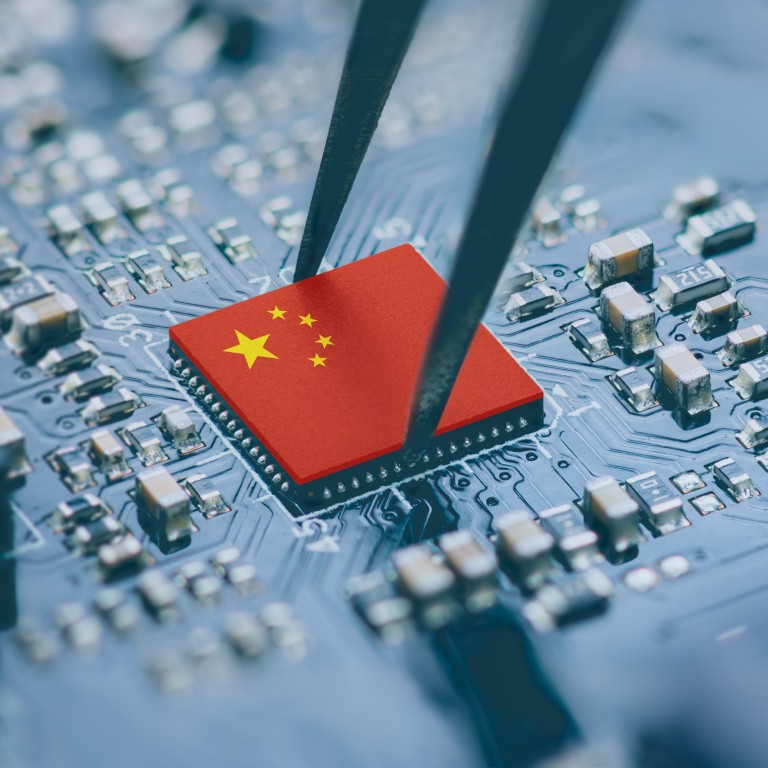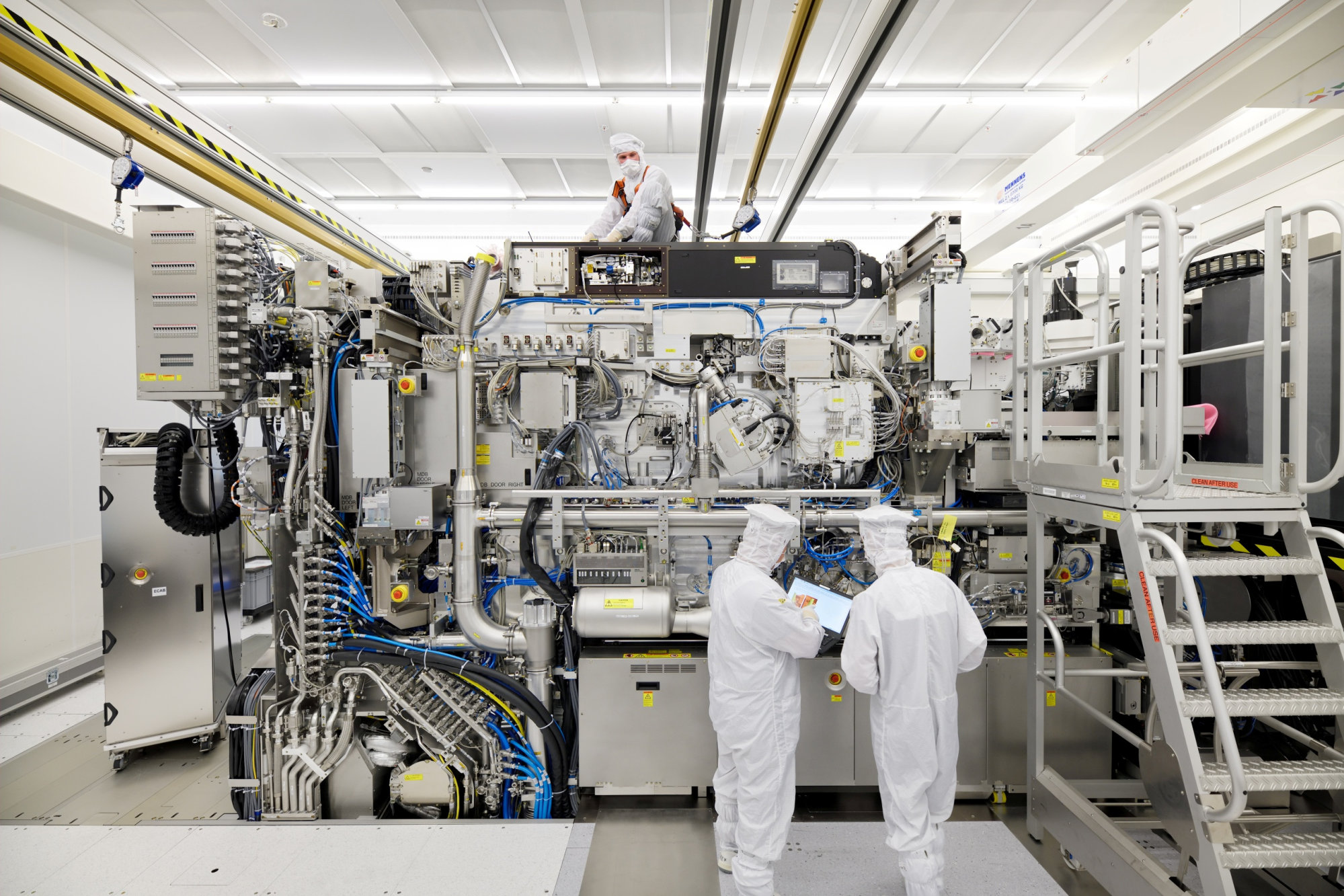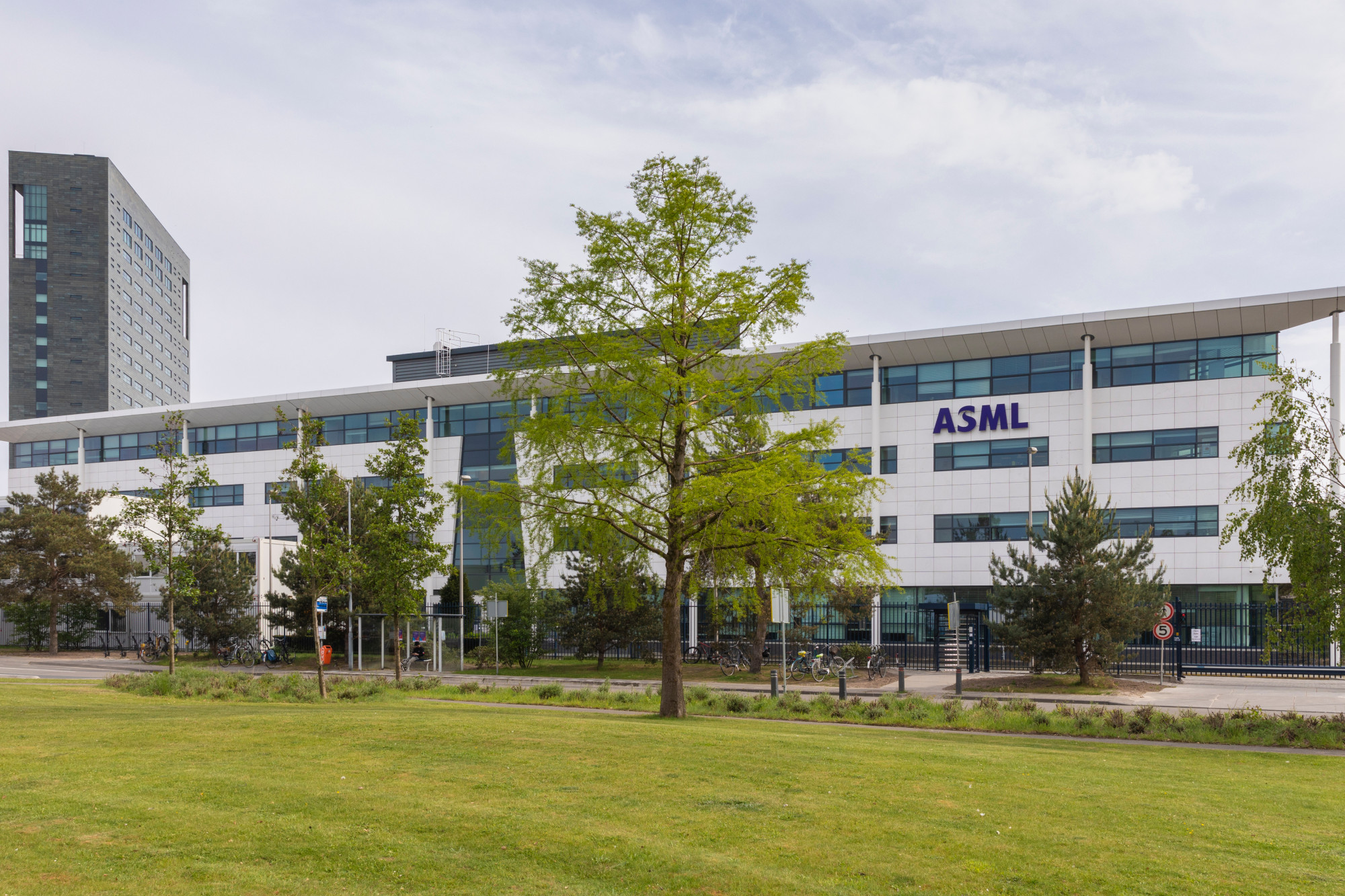
US pushes Netherlands to ban Dutch tech supplier ASML from selling older semiconductor manufacturing equipment to China
- Washington’s proposed new restriction would expand an existing moratorium on the sale of the most advanced chip-making systems to China
- If the Netherlands agrees, it would significantly broaden the range and class of chip-making gear now forbidden from heading to China
American officials are lobbying their Dutch counterparts to bar ASML from selling some of its older deep ultraviolet lithography, or DUV, systems, the people said. These machines are a generation behind cutting-edge, but still the most common method in making certain less-advanced chips required by cars, smartphones, computers and even robots.
ASML’s American Depositary Receipts extended losses to as much as 8.3 per cent, the biggest intraday drop since March 2020, after Bloomberg’s initial report. Shares in Nikon Corp, a smaller rival to the Dutch firm in that sphere of chip making gear technology, slid as much as 8.6 per cent in Tokyo – heading for their biggest drop in almost two years. SMIC and Hua Hong also fell more than 1 per cent in early Hong Kong trading on Wednesday.

“ASML’s sales could narrow by 5-10 per cent if it’s banned from selling deep ultraviolet tools in China,” Bloomberg Intelligence analysts Masahiro Wakasugi and Brian Moran said in a report. “As the chip equipment maker’s revenue already reflects a ban on extreme ultraviolet tool shipments to [China], it may experience less impact versus peers such as Applied Materials, which derives 25-30 per cent of its sales from China.”
The Dutch government has yet to agree to any additional restrictions on ASML’s exports to Chinese chip makers, which could hurt the country’s trade ties with China, the people said. ASML is already unable to ship its most advanced extreme ultraviolet, or EUV, lithography systems, which cost about 160 million euros (US$164 million) per unit, to China because it cannot obtain an export licence from the Dutch government.

The US Department of Commerce and the Dutch Ministry of Foreign Affairs declined to comment.
“The discussion is not new,” an ASML spokeswoman said. “No decisions have been made and we do not want to speculate or comment on rumours.”
ASML is the world’s top maker of lithography systems, machines that perform a crucial step in the process of manufacturing semiconductors. ASML’s dominance of the market for that type of equipment means that further cutting China off from access to its products would undermine Beijing’s ambitions to make the country more self-sufficient in producing the crucial electronic components.
“China’s share of the global chip equipment market is negligible,” said Alex Capri, a research fellow at the Asia-based Hinrich Foundation, characterising chip production as “a choke point” in the country’s plans to bulk up its semiconductor muscle.
The older generation of machinery, DUV, is less capable than more advanced EUV lithography equipment, but remains indispensable in manufacturing many of the types of chips that are currently experiencing acute shortages. Washington is focused on banning sales of the most advanced type of DUV technology, immersion lithography machines, the people said.
China’s chip output rebounds but still lower than a year earlier
Immersion lithography is also known as argon fluoride immersion, or simply ArFi. ASML sold 81 ArFi systems in 2021, compared with four from Nikon, giving the Dutch firm a 95 per cent market share, according to China-based Founder Securities.
“We have no information regarding this matter,” a Nikon spokeswoman said.
ASML opposes a ban on sales of DUV lithography equipment to Chinese customers because it is already a mature technology, Wennink said earlier this year. China-based facilities, run by either domestic or foreign companies, account for 14.7 per cent of ASML’s total revenue in 2021, according to company disclosures and data compiled by Bloomberg.
ASML flags possible IP infringement by ‘little giant’ in China
US efforts to block the export of chip-making equipment began under the Trump administration. Washington pressured the Dutch government to prevent sales of EUV lithography systems, which are required to produce the most sophisticated semiconductors and in which ASML has a monopoly.
Major US chip equipment makers including, Applied Materials and Lam Research Corp, are already banned from selling certain advanced products to SMIC because of national security concerns. The potential DUV ban could further hit SMIC and its Chinese peers.
“Lithography equipment is the most difficult equipment for China to replace when it comes to semiconductor production,” said Johnson Wang, an analyst at Taiwan Institute of Economic Research. “Without access to foreign DUV lithography equipment, the progress of China’s chip industry could come to a halt.”

